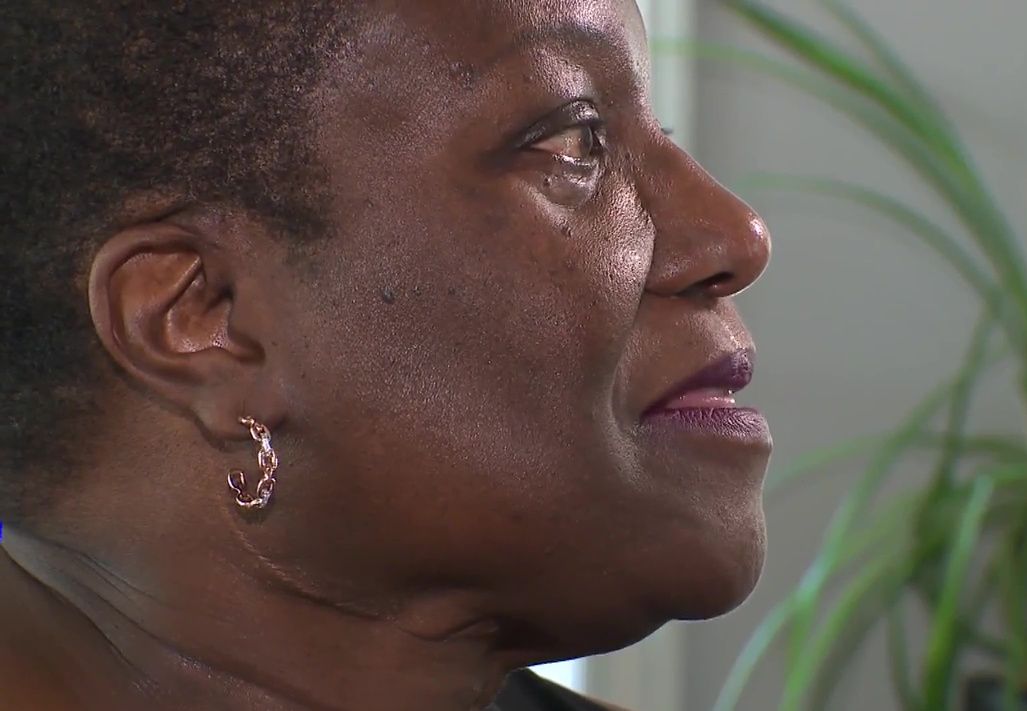Patients at a world-renowned medical facility in west Edmonton fear the future of their care is in limbo because of a staffing issue.

Concerns are growing over the potential loss of the main doctor at the Institute of Reconstructive Sciences in Medicine (iRSM) that specializes in face and neck cancers.
Receiving a cancer diagnosis is a terrifying ordeal and living with the aftermath of surgery and treatments can lead to poor quality of life for survivors. The same can be said for survivors of trauma suffered during things like car crashes and other accidents, or for those who live with birth defects.
For 31 years, the iRSM inside the Misericordia Community Hospital has focused on medical reconstruction and rehabilitation to improve life after treatment.
A major focus of the facility is the use of bone-anchored implant technology (osseointegration) to reconstruct parts of the head and neck to attach custom designed and manufactured prosthetics, according to Alberta Health Services.

Brenda Frederick is a longtime patient and incredibly grateful for the care she’s received the past 23 years. She had osteosarcoma, a type of bone cancer, in her jaw. An 18-hour surgery cutting open half her face was the only option to remove it.
“If somebody tells you they’re going to be rearranging your face and your mouth, that is scary,” Frederick said of the highly specialized surgeons who saved her life.
“It’s ultra scary. But I had faith.”
Frederick said there were five teams in the operating room who worked together to remove the cancerous cheek and jaw bones, harvested other bone from her leg to go into her face, performed skin grafts, and then carried out the meticulous plastic surgery to reconstruct her appearance.

Get weekly health news
“So basically my face was cut from here to here to here,” she said, gesturing from the bottom of her eye, along her nose, down her cheek and mouth to her neck, “And pulled back,” she said.
She expected to live with graphic scars but instead, a stranger would be hard-pressed to tell she’d undergone such extensive surgery.
“I said, ‘You can have me looking like just an awful old woman, like the old witch of the sea,'” Frederick said of a conversation before surgery with her doctor. “And he said, ‘No, you’ll look better than Whitney Houston!'”
Even though Frederick survived the cancer, the reconstructed part of her face requires special attention: she said it’s sensitive and prone to infection, so she has to be careful about what she eats, her oral hygiene practices and things as simple as a dentist visit for other people are a complicated endeavour for her, made easier by the guidance of her maxillofacial prosthodontist and the team at iRSM.
“When you’re dealing with people like myself, what you’re working with is highly sensitive tissue that has been harvested from another part of your body and made to fit in there.”
“The bottom line is: the maintenance and care is needed. We cannot get by without it.”
Two decades after her surgery, she sees her doctor semi-annually for checkups. At her most recent visit, Frederick said her physician told her his contract was up on June 30 and said there had been no communication with Covenant Health about his status.
“He wants to stay there. He’s specialized, he’s dedicated — this man has put his all into this,” Frederick said, adding her doctor moved to Canada to practice his specialty.
“He’s not a local. He also told me that there’s nobody in the province or anywhere around Canada that is trained to do this type of work.”
“There’s lots of prosthodontists around but they’re not trained to deal with the sensitivity of the tissue area — like the bone structure, the new structure,” Frederick said.

The iRSM is a joint-venture between the University of Alberta, Alberta Health Services and Covenant Health, which runs the Misericordia Community Hospital in which the institute is located.
Global News has been unable to speak directly with the physician in question to hear his side of the story and therefore, is not disclosing his name.
Covenant Health released a statement saying it could not comment on “individual human resource matters,” citing privacy reasons.
The health-care provider said many iRSM services continue uninterrupted and there is no anticipated surgical delay for patients with disease or trauma to their head and neck.
“When recruiting clinicians, Covenant Health reviews the clinical skill sets necessary to support patient care and needs. We are currently recruiting qualified prosthodontists for iRSM’s multidisciplinary team, and until we have more resources, we will continue to see patients as capacity allows,” the statement said.
People travel from all over Alberta for the specialized care and Frederick is worried Edmonton could lose it, or could see a scenario in which the treatment offered at the public clinic would only be available via a private facility.
“For patients like myself, we at this time have nowhere to turn,” Frederick said.
Covenant Health said “continuity of care is our highest priority” and patients who have questions about their treatment are encouraged to contact the clinic.
A Change.org petition has been launched, calling on the province and Covenant Health to ensure continuity of publicly funded services at the iRSM.








Comments
Want to discuss? Please read our Commenting Policy first.